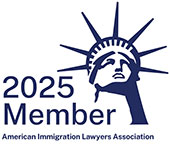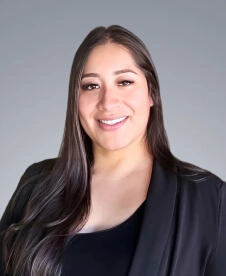Adjusting status is the process that allows certain individuals already present in the United States to apply for lawful permanent resident status (or a green card) from within the country.
It offers an alternative to consular processing, where applicants must return to their home country to complete visa processing.
For many, adjustment of status provides a more efficient and convenient path to getting a green card.
What is Adjustment of Status?
In short, adjustment of status allows someone to obtain permanent resident status without having to leave the U.S.
It involves filing Form I-485 with U.S. Citizenship and Immigration Services (USCIS), undergoing biometrics screening, having an interview, and getting your green card approved.
It’s important to understand that adjustment of status is not for everyone hoping to immigrate to the U.S. It requires being physically present in the U.S., generally after a legal entry, and sometimes maintaining valid immigration status.
For some, consular processing is the only option. But for others already here, adjustment of status provides a smoother journey.
Eligibility Requirements for Adjustment of Status
Meeting all the requirements for adjustment of status is crucial.
Here are the key criteria:
- You must generally have legal entry to the U.S., although there are some exceptions (for example, individuals who are 245(i) beneficiaries or granted VAWA)
- If filing for adjustment of status as the spouse or child of a green card holder, you need to maintain valid immigration status until you file your green card application. Falling out of status makes you ineligible. This does not apply to spouses of U.S. citizens.
- There must be an immigrant visa immediately available to you through an approved family immigration petition.
- You cannot have any issues that make you inadmissible, like criminal convictions.
How to Apply for Adjustment of Status
The adjustment application involves completing and filing Form I-485 along with supporting documents and paying fees.
Form I-485 is the main application with questions on eligibility. Fill it out meticulously to avoid delays and include supporting documents like passport photos, a copy of your passport, and financial evidence. You’ll also need to pay filing fees and biometrics fees.
After filing, you’ll be called in for biometrics (fingerprints and photos), and you must complete a medical exam by an approved civil surgeon. If it sounds like a lot, it’s because it’s meant to be. The immigration system makes it purposefully difficult to navigate their system.
But don’t be deterred—consult our immigration attorneys at the Law Office of Lina Baroudi in San Jose to guide your steps.
After Filing the I-485 Application
Filing is just the beginning. After filing, you’ll receive receipt notices in the mail once USCIS accepts your application.
You can apply for work and travel permits while your case is pending using Form I-765 and I-131. You must regularly check your case status online in your USCIS account.
During your wait, you may receive Requests for Evidence (RFEs). Make sure to respond promptly. Once your case is complete, you may be called in for an interview at your local USCIS field office.
The Adjustment of Status Interview
The interview with a USCIS officer is your chance to prove your eligibility in person. Go in expecting that the officer will ask interview questions about your background, immigration history, status documents, eligibility qualifications, bona fide marriage if you applied through a spouse, and more.
You may also be asked to provide additional materials on the spot, so come prepared.
Speak honestly, but keep your answers short and to the point. Don’t get flustered if the questioning feels intense. The officer just wants to determine if you meet the criteria. Bring an interpreter if you need language help.
While approval on the spot is possible, it’s also common for officers to make you wait days or weeks for a final decision by mail. Don’t panic if you don’t immediately get a clear yes or no when your interview ends.
What Happens After Your Adjustment Interview?
You’re in the home stretch waiting for a decision. Here’s what to expect next:
If approved, you should receive your 10-year green card in the mail within 2-3 weeks. In marriage-based cases, you may get a conditional 2-year card first, requiring you to remove conditions later.
If you get denied, unfortunately, there is generally no option to appeal the decision. It’s advisable to consult a qualified immigration attorney to discuss your options.
Watch Out for These Common Adjustment of Status Mistakes
While adjusting status offers a valuable immigration option for many, it also comes with ample opportunity to make missteps that can completely derail your case.
Be vigilant against these common errors others have made on their application journeys:
- Falling out of valid immigration status – If married to a green card holder or filing as the child of a green card holder, your eligibility depends on maintaining lawful status until you file your green card application. Something as minor as overstaying your visa by even one day can get your entire green card application denied. Always keep status!
- Working without authorization – Engaging in unauthorized employment before your EAD is approved constitutes a violation that must be disclosed. For spouses and children of green card holders, this will bar you from adjustment of status. Don’t risk it.
- Traveling abroad without advance parole – If you depart the U.S. without first getting approved advance parole, you forfeit your adjustment application altogether. Don’t travel until you get travel permission. There is a limited exception for individuals who are currently in the U.S. on H-1B or L-1 status.
- Missing deadlines for documents – Failing to respond in time to an RFE or missing your biometrics appointment can lead to a denied case. Stay on top of due dates.
- Not maintaining updated address – Filing the AR-11 change of address form is required whenever you move. If you don’t, you may miss crucial USCIS notices.
- Withholding or misrepresenting information – Lying on your forms or in your interview is grounds for denial or even deportation. Always disclose honestly.
These common mistakes can upend your adjustment application, even if you’re otherwise eligible. Move forward with your green card application carefully and completely.
Contact The Law Office of Lina Baroudi
For help navigating adjustment of status, turn to trusted legal professionals. At the Law Office of Lina Baroudi, years of experience with immigration means we can guide you through this journey successfully.
Contact us today to start your adjustment case with confidence.





















